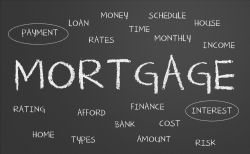First Time Buyers
You may find buying your first home a little bit daunting. There’s the challenge of finding your first property, choosing the most suitable mortgage, selecting the best solicitor and making sure the whole process runs smoothly.

The first step is to call Bee Mortgages to discuss the mortgage options available to you. It doesn’t matter if you haven’t found a property just yet, as facts and figures can be provided that will help you select the property within your price range. It is also better to get a mortgage approved in principle first, so that you can show vendors and estate agents that you are ready and able to proceed.
The amount of mortgage you can get depends on your income and your committed expenditure as lenders now look at how much you can afford based on your income and outgoings rather than a simple multiple of salary. As a rough guide though, a typical result would equate to about four times your income but this figure could be higher or lower depending on your individual circumstances and different lenders’ criteria. Lenders will also consider the number of people in the property and any loans or debts that you have outstanding along with other commitments such as child care.
Some lenders offer very good deals for first time buyers, so it always worth asking Bee Mortgages to research the market on your behalf. Use our affordability calculator on the right to get an idea of the size of mortgage you might get based on your income.
It is also worth remembering the additional costs, on top of your deposit and mortgage that you will be expected to pay.
For example, you may have to pay Stamp Duty Land Tax, which is charged at different rates depending on the portion of the purchase price that falls into defined price bands.
Details can be found at
www.gov.uk/stamp-duty-land-tax
You may also have to pay for a valuation fee and solicitors fees, and finally you may have fees to pay to the lender for your mortgage. These could be an arrangement fee and/or booking fee.
Contact Bee Mortgages to find out how much these fees may be.
Moving Home
When you’re thinking of selling your existing property and moving to a new home, it’s important that you try to budget accurately. How much can you spend on a new house? To enable you to work this out you first need to know what your total available funds are and then subtract the cost of moving home. Start by putting some simple figures down on paper, such as savings or assets you have available (not relating to your existing house), the maximum mortgage payment you can comfortably afford. Then you need to work out the cost of moving house. What will selling your property cost? Estate agents typically charge around 1% of the property value to sell your property. What will buying your new house cost? (Mortgage fees charged by the lender, solicitors costs, removal lorries, etc).
Once you’re worked out the costs for each of the categories above, you can start looking at how much money you will have available from the sale of your existing property. So, what do you think your house will sell for? What do you still owe on your current mortgage? The first figure is easy enough as you just need to discuss your potential sale with a local reputable Estate Agent. Next, finding out what you still owe on your current mortgage is simply a matter of calling and asking your lender directly, or checking on your latest annual statement.
Traditional financial wisdom recommends that your monthly mortgage payments are no more than about a third of your monthly net income (ie what you take home after tax). We don’t want to sound patronising but we can’t stress enough how important it is not to overstretch yourself. Once you’ve had a mortgage and proved you can make repayments, it is often still possible to borrow far in excess of what you might have thought possible. Don’t rely on lenders to ensure it meets your budget. It’s up to you to make a judgment call as to the risk. Remember, if interest rates start to increase, you need to ensure that you can still afford the monthly mortgage payments.
An expert, professional mortgage adviser will be able to provide you with different figures depending on rate rises. Each lender is different and with well over 1000 different mortgages it pays to get the right advice. The quickest way to discover the maximum you can comfortably borrow is by speaking to an experienced mortgage broker, such as Bee Mortgages, and we can check out relevant mortgage deals, ensuring that you get the most suitable mortgage.
Re-mortgaging
Many of us are looking for a better mortgage deal, or would like to release some of the equity in our home but the process is often not as easy as it first appears. So what do you need to know before you seriously consider re-mortgaging? Where to start? The first step is to call Bee Mortgages who can advise you on the most suitable re-mortgaging options.
We will work with you to check the terms and conditions of your existing mortgage. These will tell if you are tied-in to your mortgage deal and if there are any early repayment charges. You can then decide if it is worth switching to a different rate or stay put until the penalties have expired. Bee Mortgages will guide you through the whole re-mortgaging process.

A redemption statement will be needed from your existing lender telling you how much you owe. An application form for your new lender will be completed with the normal personal and financial details, and then submitted along with details of your income and proof of your identity. Your new lender values your home and, subject to all the paperwork being satisfactory, the lender will issue a mortgage offer which will contain the amount of the mortgage and the terms that they will offer you. Solicitors will need to be instructed at this point to arrange the legal documentation, leading through to completion of the loan. There are many re-mortgage deals that offer a free mortgage valuation and free legal fees.
The whole process should take about a month to complete, however this may vary depending on the circumstances.

